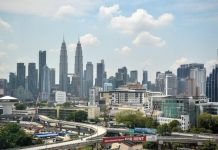Recently, Malaysian Prime Minister Muhyiddin Yassin announced that businesses throughout almost all economic sectors would be allowed to operate from 4 May onwards. This includes the F&B industry, which has so far managed to get by fairly well during the MCO period. The loosening of restrictions on business has been dubbed the CMCO (Conditional Movement Control Order).
However, seven out of Malaysia’s 14 states are not keen on the idea. They believe that it is too soon to reopen businesses on such a large scale, and that there is not enough time to prepare safety precautions. As such, these seven states have announced that they will be disallowing the reopening of the economy.
This is a potentially significant blow to the F&B industry as many major food manufacturing companies have their main operations located in Selangor and Negeri Sembilan, both of whom are among dissenting states.
Although food manufacturing has been labelled as an essential services, output and manufacturing capabilities have been much reduced due to the MCO limiting available manpower to operate the factories. As such, F&B manufacturing has stood by the decision for the economy to reopen.
On the other hand, Health Director General Noor Hisham Abdullah has advised businesses not to rush to reopen during the CMCO, especially if they are not ready to comply with the SOPs (standard operating procedures) of the CMCO.
Many Malaysians are also still wary about reopening too soon, citing Hokkaido, Japan as an example. Hokkaido lifted its COVID-19 restrictions far too early, which in turn led to a second wave of infections. Concerns are high that the hasty reopening of Malaysia’s economic sectors could possibly lead down the same path.














